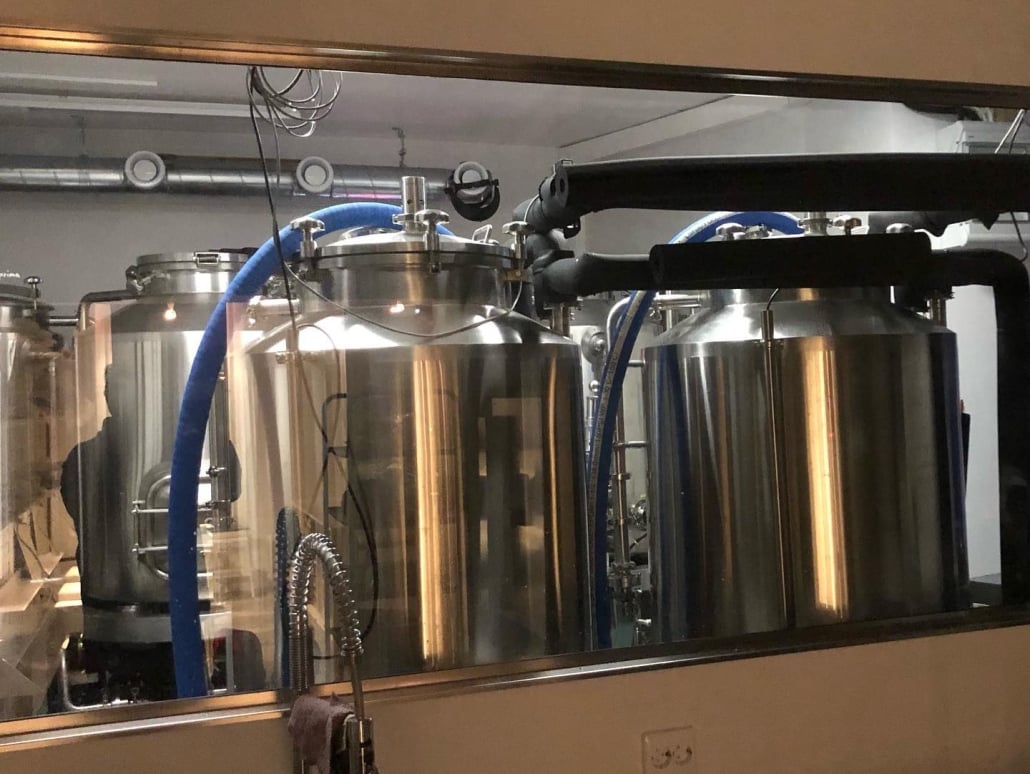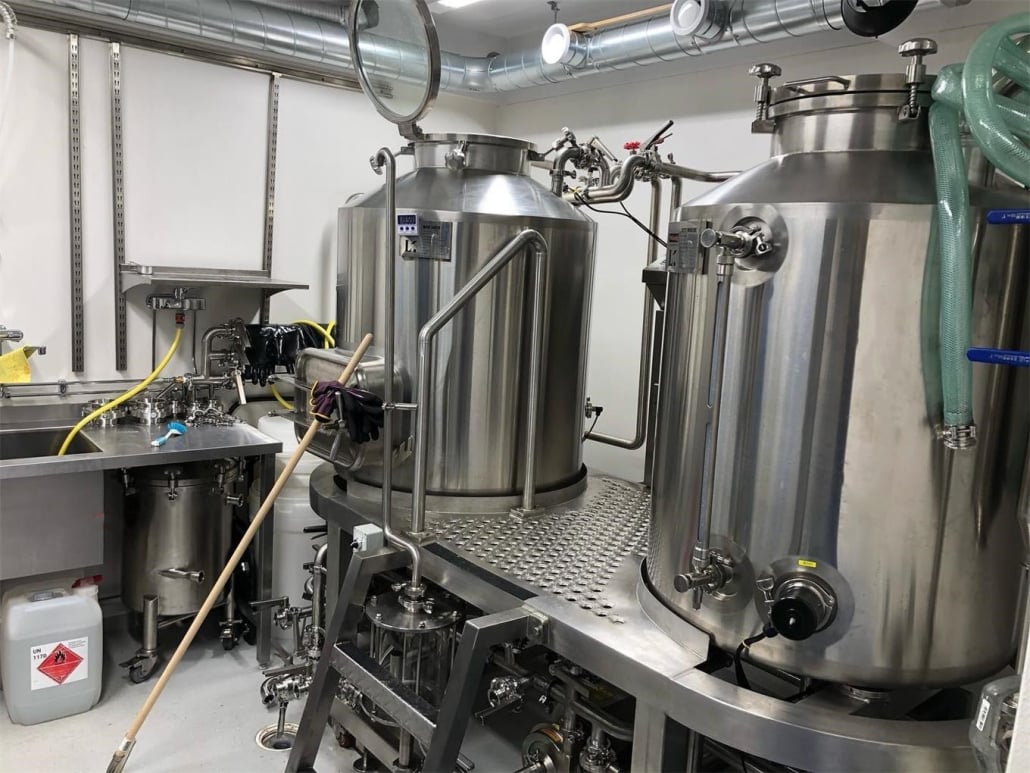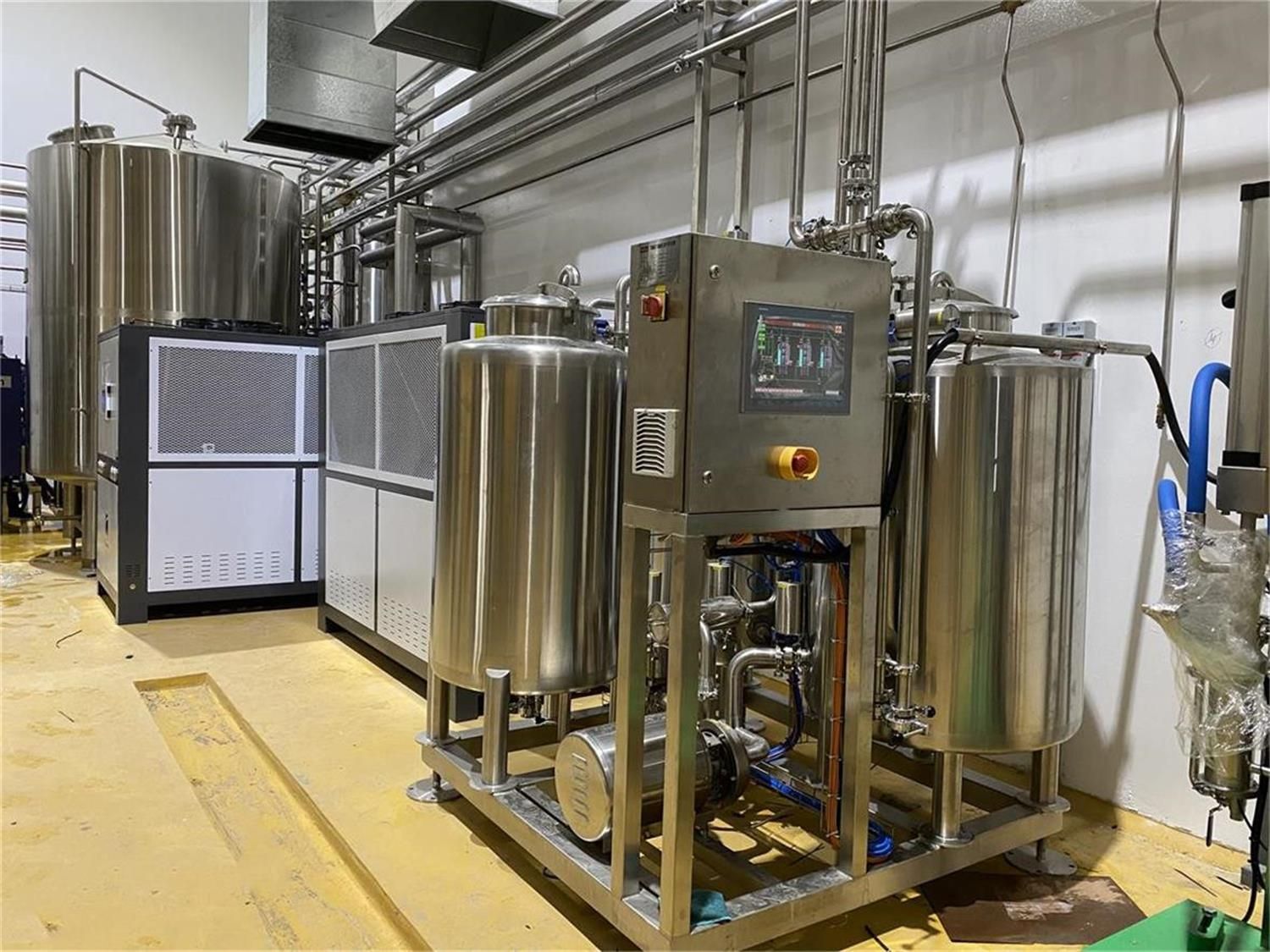Large Fermentation Vessel: Everything You Need to Know
Fermentation is the heart of any brewing or food production process, and choosing the right fermentation vessel can make all the difference. Whether you’re running a large-scale brewery, a food processing plant, or exploring industrial applications, investing in the right large fermentation vessel is key to success. But where do you start? What size, design, or customization options should you consider? This guide will break down everything you need to know in a conversational and easy-to-digest manner. Let’s dive in!
Overview of Large Fermentation Vessels
A large fermentation vessel is an industrial container used to house the fermentation process for beverages like beer, wine, and kombucha, or food products such as sauerkraut and kimchi. These vessels are designed to manage large volumes, ensuring consistent quality and efficiency for large-scale production.
Think of them as the MVP (Most Valuable Player) in a brewery or food processing line. The right vessel not only simplifies the process but also saves time, resources, and costs.
Here’s what we’ll cover in this guide:
- Types of large fermentation vessels
- Brewing processes and equipment details
- Capacity, design, and customization options
- Suppliers, prices, and maintenance tips
- How to choose the right supplier
- Advantages and disadvantages of large fermentation vessels
If you’re ready to master the world of fermentation vessels, let’s keep going!

Equipment Guide: Types of Large Fermentation Vessels
When selecting a large fermentation vessel, the type you choose will depend on your production scale, budget, and the nature of your product. Let’s break this down into simple terms.
| Type of Vessel | Description | Best Used For |
|---|---|---|
| Stainless Steel Vessels | Durable, easy to clean, resistant to corrosion, and maintains temperature. | Large breweries, wineries, and kombucha production. |
| Plastic Fermentation Tanks | Lightweight and cost-effective but less durable for long-term use. | Entry-level or experimental setups. |
| Concrete Vessels | Adds unique flavors to beverages, maintains stable temperatures. | Specialty wine production. |
| Wooden Barrels | Used primarily for aging beverages and imparting unique flavors. | Specialty beer and wine fermentation. |
| Glass Tanks | Rare in large-scale settings; fragile but non-reactive and transparent. | Small, niche production setups. |
Stainless Steel Vessels vs. Plastic Vessels
If you’re running a large-scale brewery or food plant, stainless steel fermentation vessels are the gold standard. Why? They are durable, non-reactive, and easy to clean, making them ideal for maintaining hygiene and consistency.
Plastic tanks, on the other hand, are more affordable but come with trade-offs. They can absorb odors, wear down over time, and may not withstand extreme temperatures.
Pro tip: If you’re serious about scaling your production, investing in stainless steel pays off in the long run.
Capacity, Spaces, Design, and Customization
Choosing a large fermentation vessel isn’t just about picking the biggest tank. You need to consider capacity, space requirements, design elements, and customization options to match your production goals.
| Parameter | Details |
|---|---|
| Capacity | Ranges from 500 liters to over 10,000 liters depending on production scale. |
| Design | Conical bottoms for yeast collection; cylindrical shapes for consistent mixing. |
| Customization | Options for cooling jackets, pressure gauges, and automatic temperature controls. |
| Space Requirements | Requires large floor space; tall vessels might need high ceilings. |
| Material | Stainless steel is preferred for its durability; other materials include plastic, wood, or concrete. |
Why Design and Customization Matter
Let’s say you’re brewing beer. A conical-bottom design is ideal because it allows for easy yeast harvesting, saving time and effort. Adding cooling jackets ensures precise temperature control, which is crucial for consistent results.
The bottom line? Don’t just buy any tank. Tailor the design to your production needs!
Brewing Process with Large Fermentation Vessels
How does the fermentation process work with a large vessel? Let’s walk through the steps in simple terms:
- Preparation: Start by preparing your ingredients (like malted barley, hops, yeast, or fruits).
- Wort Transfer: The prepared liquid (wort) is transferred into the fermentation vessel.
- Fermentation: Add yeast to the vessel. The yeast consumes the sugars, producing alcohol and CO2.
- Temperature Control: Use the vessel’s temperature control features to ensure the yeast works optimally.
- Monitoring: Regularly check pressure, temperature, and yeast activity.
- Harvesting: After fermentation, collect the finished product and separate the yeast.
Think of it like baking bread but on a massive scale. The vessel ensures all steps are consistent, repeatable, and efficient.
Suppliers and Price Range for Large Fermentation Vessels
The cost of large fermentation vessels varies depending on the material, capacity, and features. Here’s a breakdown:
| Supplier | Price Range | Features |
|---|---|---|
| ABC Brewing Systems | $5,000 – $20,000 | Custom stainless steel vessels with conical bottoms. |
| XYZ Tanks Ltd. | $8,000 – $30,000 | High-capacity vessels with advanced temperature control. |
| BrewingPros Inc. | $10,000 – $50,000 | Fully automated systems for large breweries. |
| Budget Tanks Co. | $3,000 – $10,000 | Affordable plastic and small-scale stainless tanks. |
Choosing the Right Supplier
When selecting a supplier, consider these factors:
- Reputation: Look for reviews and testimonials.
- Customization: Does the supplier offer tailored solutions?
- After-Sales Support: Check if they provide maintenance and repair services.
- Warranty: A good warranty ensures peace of mind.
Installation, Operation, and Maintenance
Owning a large fermentation vessel isn’t just about the upfront cost. Proper installation, operation, and maintenance are essential to getting the most out of your investment.
| Aspect | Details |
|---|---|
| Installation | Requires professional setup, alignment, and testing. |
| Operation | Use automated controls for temperature and pressure management. |
| Maintenance | Regular cleaning, sanitizing, and inspecting for wear or leaks. |
| Cleaning Process | CIP (Clean-In-Place) systems for stainless steel vessels. |
| Long-Term Costs | Stainless steel requires minimal upkeep compared to plastic alternatives. |
Advantages and Disadvantages of Large Fermentation Vessels
Here’s a quick comparison to help you weigh the pros and cons:
| Advantages | Disadvantages |
|---|---|
| High production capacity | Requires significant floor space |
| Durable and long-lasting materials | Higher upfront costs |
| Customizable designs for specific needs | Installation may need expert assistance |
| Automated systems improve efficiency | Maintenance can be time-consuming |

FAQs
| Question | Answer |
|---|---|
| What is a large fermentation vessel? | It’s an industrial container used for fermentation. |
| What material is best for large vessels? | Stainless steel is the preferred choice. |
| How much do large fermentation vessels cost? | Prices range from $3,000 to $50,000 depending on size and features. |
| Can large vessels be customized? | Yes, options include conical bottoms, cooling jackets, and automation systems. |
| How do I maintain a large fermentation vessel? | Regular cleaning, sanitizing, and inspection are key. |
Conclusion
A large fermentation vessel is an essential piece of equipment for any growing brewery or food production business. From stainless steel tanks to specialized wooden barrels, the right vessel can take your production process to the next level. Consider your needs, budget, and customization options carefully before making a purchase.
With the right setup, you’re not just brewing beer or fermenting food—you’re crafting an experience that your customers will love. Cheers to that!
Frequently Asked Questions (FAQ)
- Q1: What qualifies as a “Large Fermentation Vessel” for industrial use?
A1: Generally 500–10,000+ liters (≈4–85+ BBL) with jacketed cooling, conical bottoms, CIP spray devices, PRVs, and sanitary tri-clamp fittings. Designs vary by beverage and process needs. - Q2: Which stainless grades and finishes are best for large vessels?
A2: 304 is standard; 316/316L is used for higher chloride or acidic environments. Specify polished or electropolished interiors with Ra ≤ 0.8 μm and post-fabrication passivation (ASTM A967). - Q3: How do I size chilling capacity for a large fermentation vessel?
A3: Plan 1.5–2.0 refrigeration tons per 100 BBL of simultaneous peak fermentation load, plus margin for crash cooling. Use multi-zone (cone + cylinder) jackets and insulated glycol piping. - Q4: Can large vessels support low-oxygen (LODO) practices?
A4: Yes—use closed transfers, CO2/N2 purges, pressure-rated hop/ingredient dosers, and inline/handheld DO meters. Aim for post-transfer DO of 20–50 ppb for best stability. - Q5: What drives total cost of ownership beyond purchase price?
A5: Utilities for cooling/CIP, cleaning chemicals, seal/valve replacements, sensor calibration, downtime, and compliance testing (PRVs, pressure ratings). Automation can reduce OPEX over time.
2025 Industry Trends: Large Fermentation Vessel
- Smart controls at scale: Inline DO, density, pressure, and temperature integrated via OPC UA/MQTT to MES/SCADA for predictive control and alarms.
- Water and energy intensity targets: Leading facilities target 3.0–4.0 hL water per hL of product and 6–9 kWh/hL brewhouse energy with heat recovery and CIP endpoints.
- Hygienic design documentation: Orbital weld logs, drainability studies, and Ra verification included in FAT/SAT packages.
- Safety automation: Scheduled PRV verification routines, CO2 monitoring, and automatic ventilation interlocks.
- Modular growth: Skid-mounted manifolds, prefab platforms/catwalks, and stacked tank layouts reduce install time and footprint.
2025 Benchmarks and Spec Ranges for Large Fermentation Vessels
| Metric / Spec | 2022 Typical | 2025 Best-in-Class | Notes / Sources |
|---|---|---|---|
| Interior finish (process side) | Ra ≤ 1.2 μm | Ra ≤ 0.6–0.8 μm | 3-A/EHEDG hygienic guidance: https://www.3-a.org |
| Inline DO post-transfer (ppb) | 80–150 | 20–50 | ASBC Methods (DO/TPO): https://www.asbcnet.org |
| Water intensity (hL/hL) | 4.5–6.5 | 3.0–4.0 | Brewers Association: https://www.brewersassociation.org |
| CIP duration (min) | 90–120 | 50–80 | Conductivity/temperature endpoints, drainable design |
| Unplanned downtime (%) | 6–10 | <3 | Predictive maintenance, remote diagnostics |
| Typical pressure rating | 15 psi | 30 psi | Supports spunding, faster conditioning |
Latest Research Cases
Case Study 1: Model-Predictive Cooling Stabilizes 150 hL Fermentations (2025)
Background: A brewery scaling to larger cylindroconical vessels saw temperature overshoot and variable diacetyl rests.
Solution: Added upper jacket zone, implemented model-predictive temperature control, and integrated inline DO and densitometry with OPC UA to the cellar dashboard.
Results: Peak exotherm overshoot cut from 1.6°C to 0.5°C; diacetyl rest shortened by 15%; post-transfer DO stabilized at 28–45 ppb; CIP water use reduced 21%.
Case Study 2: Low-Oxygen Dry-Hop Dosing on 120 hL Vessels (2024)
Background: Hop-forward SKUs showed aroma fade and elevated DO after dry hopping.
Solution: Installed pressurized hop dosers with CO2 purge, sequenced valve operations, and standardized purge volumes in SOPs.
Results: Post-hop DO held at 35–55 ppb (prior 120–200 ppb); sensory shelf life extended by ~30–45 days; returns for oxidation dropped >40%.
Expert Opinions
- Dr. Tom Shellhammer, Professor, Oregon State University
Viewpoint: “In large vessels, precise thermal control and oxygen management are decisive for hop aroma retention and flavor stability.” Source: OSU Hop & Brewing research talks/publications. - Mary Pellettieri, Brewing Quality Consultant; Author, Quality Management for Breweries
Viewpoint: “Specify measurable hygiene—surface roughness, drainability, and validated CIP endpoints—alongside capacity. Consistency is designed in.” Source: Industry QA literature and workshops. - Prof. Chris Boulton, Brewing Scientist (Emeritus), University of Nottingham
Viewpoint: “Cone geometry, hydrostatic pressure, and yeast cropping strategies strongly affect fermentation kinetics and final clarity at scale.” Source: Academic lectures/publications.
Practical Tools/Resources
- Brewers Association: Cellar/CIP best practices, sustainability metrics — https://www.brewersassociation.org
- ASBC Methods of Analysis (DO/TPO, VDK, micro) — https://www.asbcnet.org
- 3-A Sanitary Standards & EHEDG guidelines — https://www.3-a.org | https://www.ehedg.org
- MBAA Technical Quarterly & webinars (fermentation control/design) — https://www.mbaa.com
- OPC Foundation (OPC UA) for sensor/control integration — https://opcfoundation.org
- U.S. DOE Better Plants (energy management for process cooling/steam) — https://www.energy.gov
Last updated: 2025-09-01
Changelog: Added 5 focused FAQs, 2025 trends with benchmark table and sources, two case studies on model-predictive cooling and low-oxygen hop dosing, expert viewpoints, and practical resources tailored to large fermentation vessels
Next review date & triggers: 2026-03-01 or earlier if BA/EHEDG/3-A or ASBC methods update, or if new inline sensing/control tech materially changes best practices
Share this entry
Interested in learning more about Brewing Systems including additional details and pricing information? Please use the form below to contact us!
YOLONG BREWERY EQUIPMENT FAQS
- Commercial Brewery / Craft Brewery / Microbrewery / Nanobrewery
- What is The Difference Between Craft Beer and Industrial Beer?
- The Bespoke Differences In Custom Brewing Systems
- Everything You Need to Know About Kettle Souring
- How to Choose Brewing Equipment for Your business?
- How To Choose The-Best Partner To Build Your Commercial Microbrewing System?
- Two Detection Sensors That You Need To Use In Your Brewhouse System
- Remote Control Applications in Brewing Equipment/How does it work?
- How To Clean Your Brand New Brewery Tanks?

